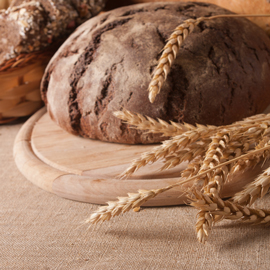Suggestions from your GERD surgeon in Macon or Atlanta on how eating more fiber can complement your acid reflux treatment

If you suffer from acid reflux or heartburn, advice can come from many places. Though the most trustworthy information will be given to you by your GERD surgeon, you’ve likely also stumbled across a few pointers online, or been offered some helpful tips by friends with similar issues.
At times, it seems there are as many “reflux cures” as there are GERD sufferers, but some hold more water than others. One bit of advice that can help you beat reflux and improve your whole-body health is this: eat more fiber.
Though fiber is one of the most important elements of a healthy diet, most Americans do not get enough. The typical recommendation is 14 grams of fiber for every 1,000 calories you eat, and hitting this mark can help by moving everything through your digestive system smoothly and preventing the excessive acid production that can lead to GERD symptoms.
Finding Fiber
Increasing your fiber can be difficult with GERD, as there are likely many foods that cause your symptoms to flare up. However, there are numerous foods that will safely help you increase your fiber intake without leading to reflux or heartburn:
Fruits and veggies. In addition to being loaded with beneficial nutrients, fresh fruits and vegetables are some of the best sources of fiber. You should avoid common reflux contributors like tomatoes and citrus as well as fatty fried or creamed vegetables, but snacking on fresh ones can be great for GERD management.
- Fruits: apples, pears, peaches, bananas
- Veggies: artichokes, carrots, black beans, broccoli
Whole grains. Grains are among the best sources of fiber out there, but the processed stuff won’t do you as much good. Whole grains contain selenium, which may help to protect your esophagus from damage. They’ll aid in digestion while also soaking up excess acid in your stomach.
- Sources: brown rice, barley, bran, oatmeal, whole-wheat bread or pasta
Nuts & seeds. High in fiber and protein, nuts and seeds make excellent snacks and can help you reach your daily fiber recommendation.
- Sources: Almonds, pecans, pumpkin seeds, sunflower seeds, pistachios
Managing GERD with diet can be a challenge, but the right strategies can make a huge difference in helping you stay symptom-free. Talk to your GERD surgeon about how fiber intake and other elements of your diet may play a role in GERD.

Leave a Reply